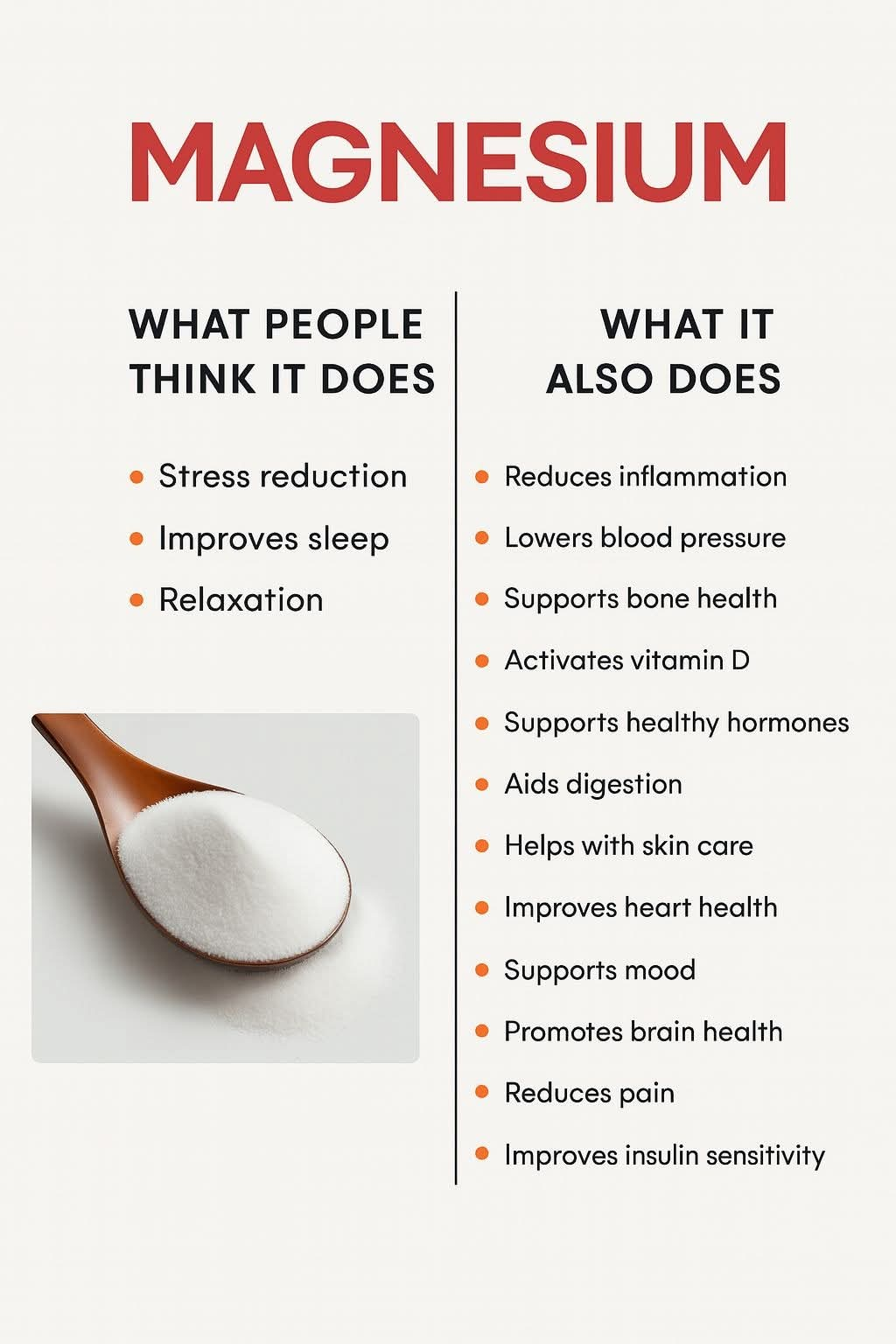4. Reduces Stress and Anxiety
Magnesium has a calming effect on the brain and nervous system by regulating like GABA, which promote relaxation. This is why adequate intake is linked to reduced stress and lower anxiety levels.
It’s sometimes called “nature’s chill pill” because of its ability to regulate the body’s stress response and lower cortisol levels naturally.
5. Strengthens Bones
Calcium gets most of the credit for bone health, but magnesium is just as important. About 60% of the body’s magnesium is stored in bones, where it contributes to bone density and strength. Without enough magnesium, the calcium absorption in your body will also decrease.
Long-term deficiency has even been linked to osteoporosis, making magnesium just as essential as calcium for lifelong bone health.
6. Supports Energy Production
Every cell in your body needs magnesium to create ATP—the main energy molecule. Low magnesium often leads to fatigue, weakness, or low endurance. Ensuring enough magnesium in your diet helps keep your energy levels stable throughout the day.
Magnesium-rich foods are particularly important for athletes, as they help prevent energy dips during physical activity.

